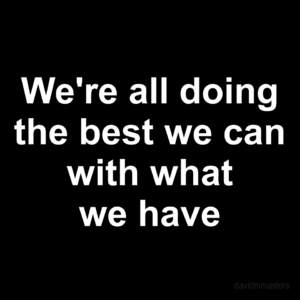It happened. You found out, by whatever means that your partner was unfaithful. Here are 7 steps to recovery from the affair. Infidelity has broken your trust and the relationship, but there might still be a chance you can recover from the affair and resume life with the cheater, if you can include these 7 steps in your process of healing and growth together.
Upon discovery, how the couple moves from this point forward will give you a good idea about how you might be able to predict if there is hope for your relationship after infidelity.
People make mistakes, and none of us is flawless. We all experience moments or weakness or indiscretion, but this need not be the death blow to your relationship, though it may feel like that when you first become aware that your partner has cheated on you.
7 Steps to Recovery from the Affair Infidelity
There is a successful formula that can be followed to achieve the best results possible when discovering an affair, dealing with the cheater and the betrayal, and reconciling. Note that even in the best of circumstances, only one of four sincere attempts as at recovery achieve a satisfactory degree of success.
If your attempt to reconcile includes the following 7 ingredients, these elements greatly enhance your chances of success.
1. Initial Separation
When one first hears about or otherwise discovers that there has been a betrayal of trust in the relationship, the initial emotional reactions of either or both parties may be counterproductive to recovering from the affair. It is suggested that a period of separation be imposed by the betrayed to establish a period of time (a minimum of 72 hours or more as designated by the victim) for the victim to have time to process the information and achieve grounding before digging into the details of the tryst. It also gives the unfaithful partner time to consider the gravity of his or her actions. If, during the separation, he or she who conducted the affair contacts the extra-relational partner (especially if sexual conduct is involved) or acts as if he or she is “single,” this will indicate the relationship is unsalvageable, even if the betrayed partner has no awareness of it.
2. Full Disclosure
When the betrayer is forthcoming in disclosing the details openly and honesty, there is a great deal of hope for recovering from the infidelity. The unfaithful partner must be remorseful, and humble. This can be extremely difficult for both parties. The victim of the affair must take caution in asking about details of the affair and have the strength to deal with the answers received in the best way possible. This is very sensitive territory and it will be hard for the partner who had the affair to be forthcoming because he or she doesn’t want to hurt your feelings. That’s why they would rather lie about it, because in most circumstances, he or she still loves you. To prove it, he or she will be…
3. Stepping Down
The cheater must be willing to step down and let the suffering partner take chief position in the effort of trying to repair the damage caused by the infidelity. The betrayer has usurped his or her authority by stepping outside the healthy bounds of the relationship. For recovery to be possible, they must be willing to hand the torch to the victim of the betrayal, who will now direct how the process of recovery will go. While steeping down, adopting remorseful humility and establish non-defensive approach to reconciling, will empower effort to reconcile for a more positive and sustainable outcome.
4. Focus on Rebuilding Trust
The trust has been broken and without trust there is no authentic relationship. The victim takes the role of the conductor, guiding the couple through any steps that might be necessary to rebuild the trust. Patience, humility, and loving-kindness in the attitude and responses offered by he or she who conducted the affair will help move things in a positive manner, but be forewarned that this may be a lengthy process as wounds from infidelity often run deep and are the most difficult to heal. This healing will take hard work, dedication, and time.
5. No Contact
The partner who has conducted the affair must be willing to sever all ties to the person who was involved in the act(s) of infidelity. According to the offended partner, the offender may have to conduct a message of “ending it once and for all” with the person with whom he or she conducted the affair with. The wounded partner may want to participate in the statement of final statement of closure in person, or listening in on the statement. Such a message of closure must also include a statement of love, commitment, and dedication to recovery to the betrayed partner. This individual must be avoided at all cost and may have to include a change of job or social interactive circumstances.
6. No Secrets
The unfaithful partner must be willing to live their future with full confidence in the betrayed partner, willing to commit to a full disclosure vibration, keeping no secrets from the partner. If there are any secrets kept, they should be kept with the wounded partner, no one else, in the recovery process. This may include full disclosure or passwords and other keys, surrendering of burner phones and inclusion of historical records, including banking or other secluded information. 100% openness and transparency indicates increased hope of successful reconciliation.
7. Focused Healing
Both parties must be focused on the healing that is necessary to recover from the betrayal of trust in the relationship. Wounded victims may suffer not only emotionally but physiological suffering may have a negative expression in the biological sphere of the betrayed. This may expressed as a deterioration of immunity, loss of energy and added propensity to chronic fatigue syndrome, depression, and/or increased risk of sickness or disease. If both participants are focused on the healing and reparation of the relationship, there is a greatly enhanced hope for recovery.
With these 7 steps to recovery from the affair, infidelity recovery can be possible if two people are committed to arriving at a possible outcome and if they are a part of the recovery process can greatly increase your probability of success.
If you can survive this as a couple, you may be able to continue to grow and increase your intimate connection having survived such a challenge and emerge as one of the power couples that the rest of us mere mortal admire so much.
May you be such an example of overcoming and rising to new height of love and life that we all aspire to.
If not, know that a faithful, loving, and monogamous partner is waiting for you, but he or she will not be able to appear until you have released this one, and signed off on the final chapter of this part of your journey.










